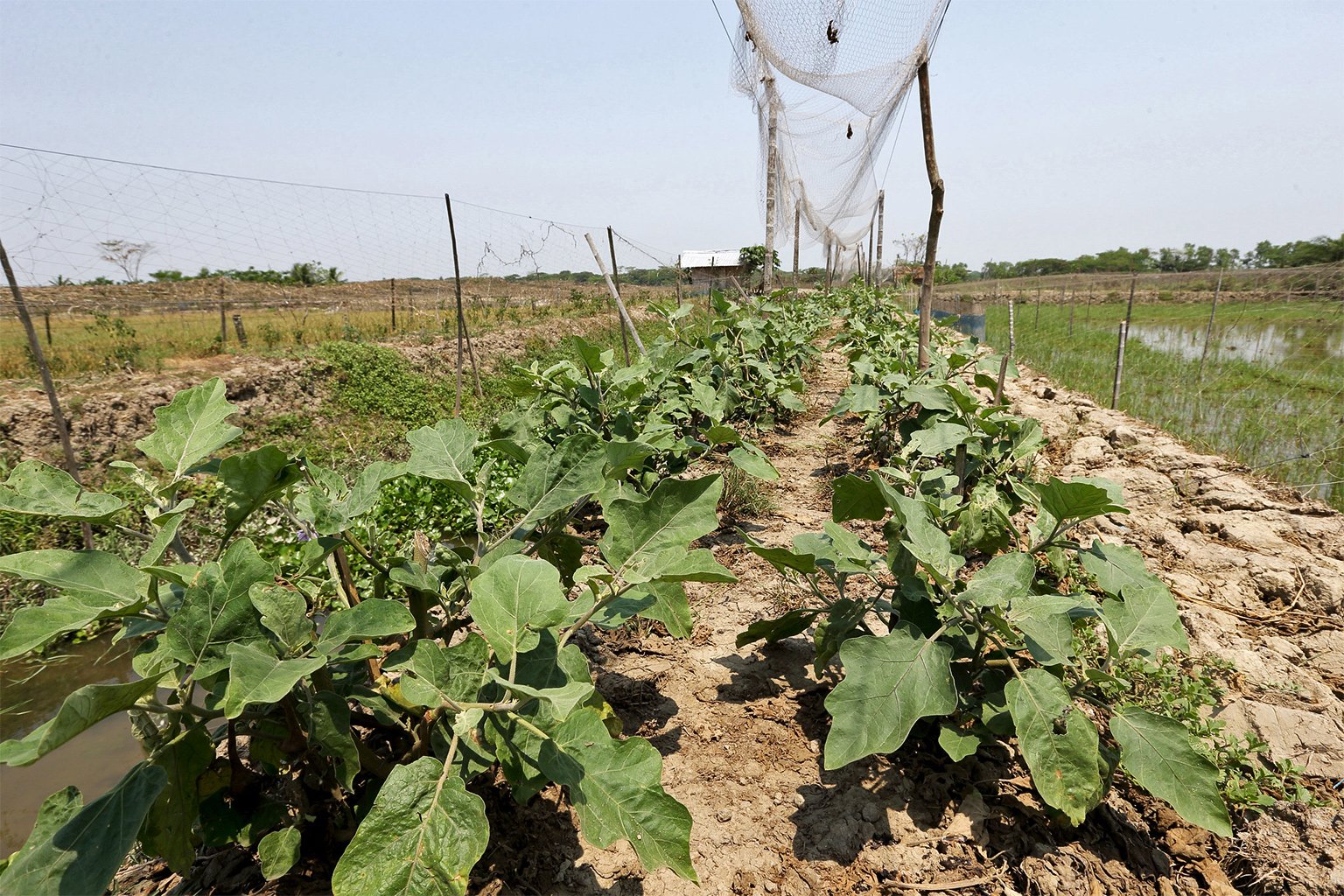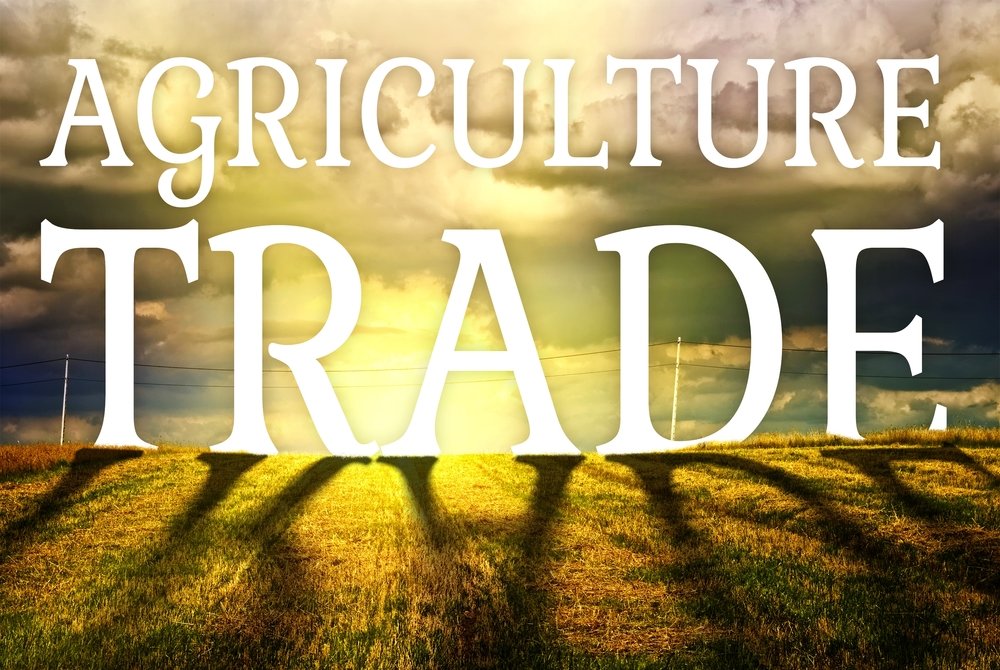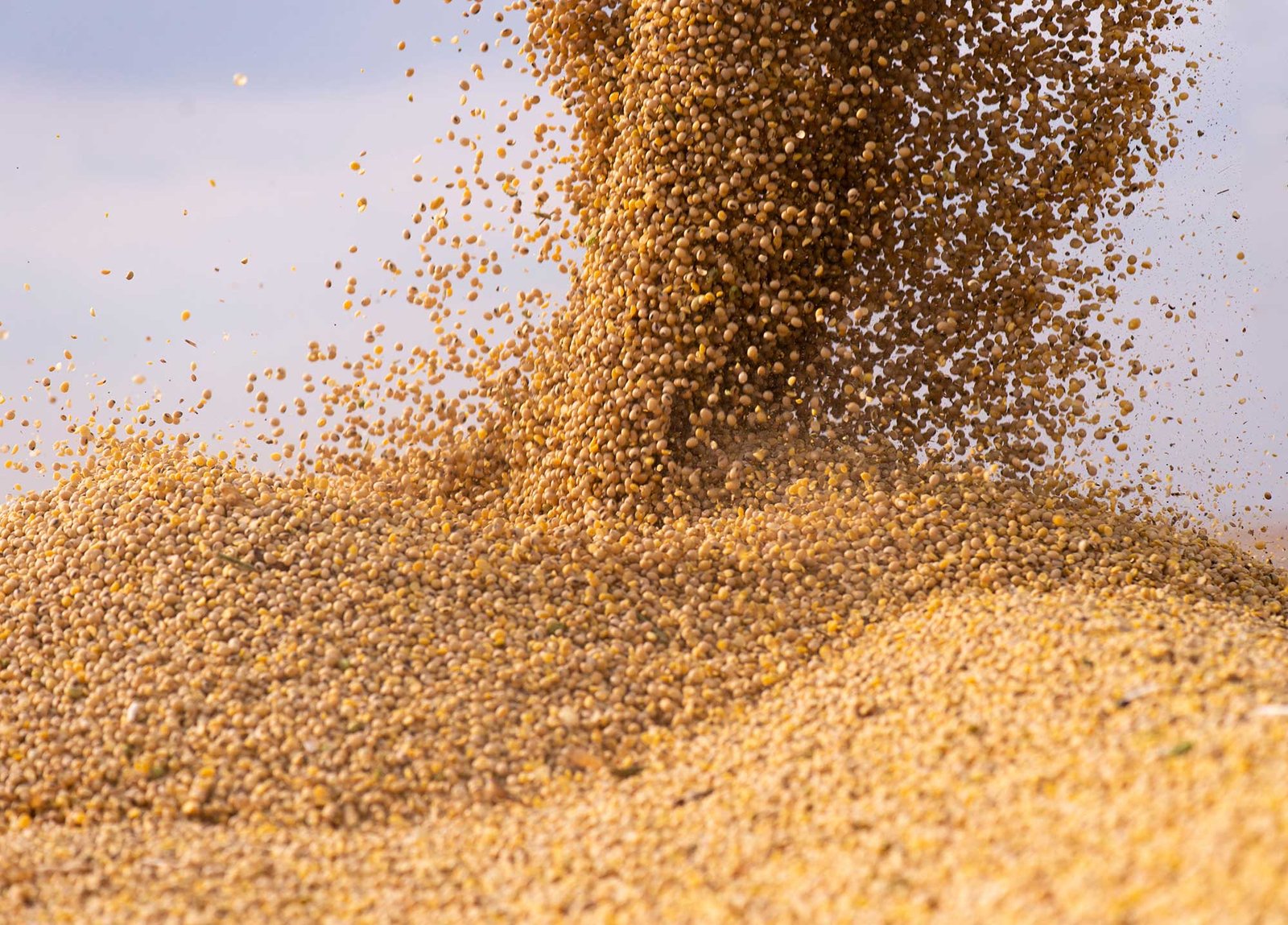- New studies have highlighted potentially cancer-causing levels of chemicals such as lead and cadmium in food crops grown across Bangladesh, and in particular in eggplants, one of the most widely consumed vegetables in the country.
- Researchers attribute the contamination to excessive use of chemical fertilizers and pesticides by farmers, as well as industrial pollution.
- Also affected are fish caught in the Buriganga River in the capital, Dhaka, and cow’s milk sold in the city.
- Regulators have acknowledged the problem, and say they’re working on efforts to reduce agrochemical use across the country and crack down on industrial pollution.
Food safety in Bangladesh faces a serious threat from heavy metal contamination, according to recent studies, with one of the country’s most widely consumed vegetables, the eggplant, containing potentially cancer-causing amounts of lead, nickel and cadmium.
Researchers attribute this to excessive use of chemical fertilizers and pesticides by farmers, as well as industrial pollution. Regulators have acknowledged the problem, and say they’re working on efforts to reduce agrochemical use across the country and crack down on industrial effluents.
In a study published in the journal Scientific Reports, researchers from Bangladesh Agricultural University focused on Jamalpur district in the country’s north, which accounts for the highest production of eggplant. Known locally as brinjal, the vegetable is grown and consumed year-round. But the almost daily use of pesticides in brinjal production have led to elevated levels of toxic metal contamination of both the vegetable and the soil, the researchers said.
“[T]he present study revealed that 75% and 10% of brinjal fruits samples exceeded the prescribed limit of [lead] and [cadmium], respectively, hence may be problematic for human health,” they wrote.
They also found that while residents of brinjal-growing areas are at relatively low risk of getting cancer from skin absorption of the metals through the soil, they face a risk “several hundred times higher for males and females than the threshold” from ingesting them through eating brinjal.
“Such high [incremental lifetime cancer risk] values suggested that consumers in the country who ate brinjal grown in the study area of Jamalpur, Bangladesh, were at much higher cancer risks,” they wrote.
Beyond brinjal: Rice and other crops at risk
Bangladesh’s rapid industrialization and the resultant industrial waste, extensive use of agrochemicals to boost crop yields, and even the use of wastewater for irrigation have been identified as the major causes of toxic metal contamination of soil, and subsequent contamination of food crops.
The country uses around 6 million metric tons of chemical fertilizers a year, according to the U.S. Department of Agriculture, and 37,422 metric tons of pesticides annually on 8.6 million hectares (21.3 million acres) of farmland, according to the Bangladesh Department of Agricultural Extension (DAE). Crops exposed to these agrochemicals range from rice to brinjal to other vegetables and fruits.
This has led to levels of toxic metals across a wide range of food crops in excess of what’s considered safe by both national regulators and the World Health Organization, according to a new study in the journal Environmental Science and Pollution Research reviewing the existing literature on food safety in Bangladesh.
“A large body of literature indicates that arsenic, zinc, cadmium, copper, chromium, and lead are present at higher concentrations than the maximum tolerable limits (MTLs) set by WHO,” the study says. “Heavy metal contamination has been attributed to the poor management of industrial effluents, improper application of metal-rich irrigation water, improper handling of trace metal additives to poultry and fish feed, and rigorous application of heavy metal-containing pesticides and fertilizers, which lead to high toxicity levels and further transfer of heavy metals into the food chain.”
Md. Rezaul Karim, additional director of the DAE, acknowledged that chemical fertilizers and pesticides are used excessively in Bangladesh to increase crop yields. However, he said the government has reduced pesticide use from 44,423 metric tons in 2011 to 37,422 tons in 2022, through a comprehensive awareness program among farmers.

Another source of heavy metal pollution is the indiscriminate discharge of untreated waste directly into rivers by industry. Mirza Shawkat Ali, director of the Department of Environment, told Mongabay that the government is implementing several different projects, including setting up waste-disposal facilities and awareness programs, to halt this kind of pollution. Affected rivers include the Buriganga, the main river flowing through the capital, Dhaka, and also the most polluted one in the country.
A 2016 study on fish caught in the Buriganga, an important source of protein for city residents, found the presence of the same carcinogenic elements. Another key protein source, milk, is also at the risk, with a 2016 study showing cow milk sold under different brands also contained carcinogenic elements. While these were detected at trace levels, the study raised concerns over long-term consumption, which it warned could pose a serious health hazard.
Jibon Krishna Biswas, former director-general of Bangladesh Rice Research Institute (BRRI) and now executive director of the Krishi Gobeshona Foundation that conducts agricultural research, called for stronger monitoring of chemical fertilizer and pesticide use. He also attributed the pollution problem to poor understanding of safety measures, ignorance of regulatory guidelines, and weak management of industrial effluents.
Banner image: Farmers harvesting eggplants in Khulna, Bangladesh. Photo by M. Yousuf Tushar/WorldFish via Flickr (CC BY-NC-ND 2.0).
Citations:
Bushra, A., Zakir, H. M., Sharmin, S., Quadir, Q. F., Rashid, M. H., Rahman, M. S., & Mallick, S. (2022). Human health implications of trace metal contamination in topsoils and brinjal fruits harvested from a famous brinjal-producing area in Bangladesh. Scientific Reports, 12(1). doi:10.1038/s41598-022-17930-5
Sarker, A., Kim, J., Islam, A. R., Bilal, M., Rakib, M. R., Nandi, R., … Islam, T. (2021). Heavy metals contamination and associated health risks in food webs — A review focuses on food safety and environmental sustainability in Bangladesh. Environmental Science and Pollution Research, 29(3), 3230-3245. doi:10.1007/s11356-021-17153-7
Kawser Ahmed, M., Baki, M. A., Kundu, G. K., Saiful Islam, M., Monirul Islam, M., & Muzammel Hossain, M. (2016). Human health risks from heavy metals in fish of Buriganga river, Bangladesh. SpringerPlus, 5(1). doi:10.1186/s40064-016-3357-0
Muhib, M. I., Chowdhury, M. A., Easha, N. J., Rahman, M. M., Shammi, M., Fardous, Z., … Alam, M. K. (2016). Investigation of heavy metal contents in cow milk samples from area of Dhaka, Bangladesh. International Journal of Food Contamination, 3(1). doi:10.1186/s40550-016-0039-1











